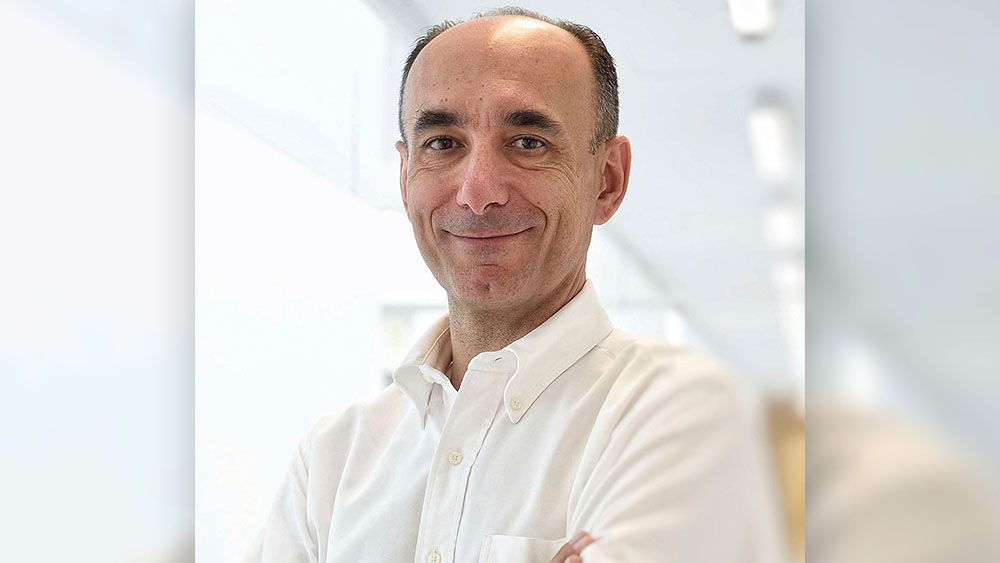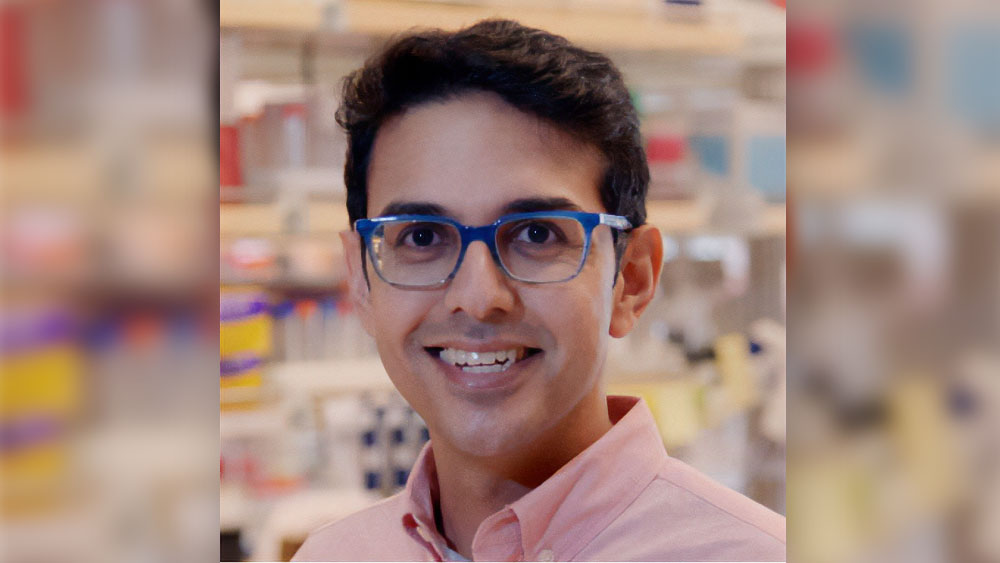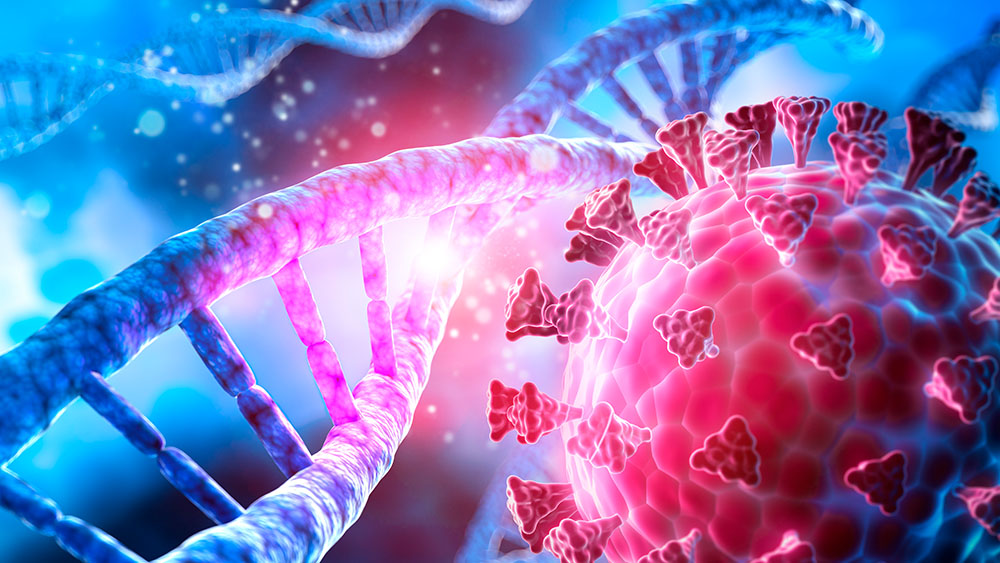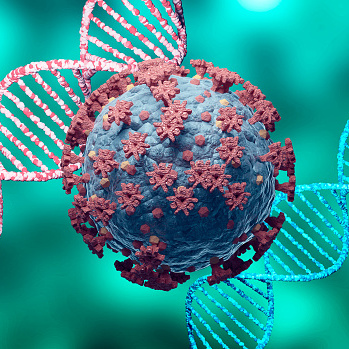Article Highlights
-
Researchers are studying the human genes that make some people resistant to SARS-CoV-2 infection and other people more likely to develop severe disease.
-
In one study, about 20% of those who died from COVID-19 had impaired immune systems that attacked a protein that helps regulate the immune response.
-
Researchers exposed lung cells to SARS-CoV-2 in laboratory experiments and revealed the genes involved in resistance to infection, which may one day lead to new and existing drugs to treat COVID-19.
Since the start of the pandemic, nearly everyone has wanted to know the answer to one question: What is responsible for the different ways people’s bodies respond to SARS-CoV-2 infection? Some people infected with SARS-CoV-2, the virus that causes COVID-19, are asymptomatic; some develop moderate but manageable COVID-19; and some, including individuals who are young and otherwise healthy, become severely ill or die from the disease. Some people may never test positive for COVID-19, even while living with an infected person.
Scientists think that for some people the answer lies in the genes, the blueprints we inherit from our parents that play a role in determining everything from our eye color to our risk of having a heart attack. Our genes also play a role in how our immune system responds to invaders and the characteristics of our lung cells, which can be attacked during the early stages of SARS-CoV-2 infection.
In two studies supported in part by the National Institute of Allergy and Infectious Diseases (NIAID) and the National Human Genome Research Institute (NHGRI), researchers working separately with COVID-19 patients and human lung cells are studying the genetics behind why people are less or more likely to develop COVID-19. These scientists have made unprecedented progress in record time and are laying the groundwork for drug and vaccine developers to create new treatments and vaccines, as well as improve existing ones.

Jean-Laurent Casanova, M.D., Ph.D. Photo credit: Patrick Delapierre.

Jean-Laurent Casanova, M.D., Ph.D. Photo credit: Patrick Delapierre.
A Misguided Immune Response to COVID-19
“In 18 months, we've been able to determine that genetics account for nearly 20% of critical cases of COVID-19, including pneumonia,” said Jean-Laurent Casanova, M.D., Ph.D., of the Rockefeller Institute and the Howard Hughes Medical Institute. His research is funded by NIAID.
Casanova co-leads the COVID Human Genetic Effort, a collaboration of more than 400 researchers and 40 sequencing hubs in 50 countries. He and his collaborators sequenced the genomes of thousands of patients with life-threatening COVID-19, publishing four papers detailing genetic similarities between people hospitalized with critical COVID-19 pneumonia.
The group found that, in some cases, the immune system mistakenly flagged and q attacked proteins called type I interferons (IFNs) that help regulate immune response. Normally, antibodies attach to foreign invaders, marking them for destruction by other immune cells. But the researchers discovered that some people made “auto-antibodies,” antibodies against their own type I IFNs. Nearly 20% of the people who died from COVID-19 created auto-antibodies.
“Their immune systems mistakenly depleted their IFNs, making them more susceptible to the virus,” Casanova said. These IFN-targeting auto-antibodies are found in uninfected individuals too, suggesting that they may contribute to the development of severe COVID-19. “Critical COVID-19 pneumonia probably results from insufficient type I IFNs in the first days of infection,” Casanova said.

NIAID COVID-19 Clinical Research
More information is available about ongoing clinical trials and opportunities for research funding.

Neville Sanjana, Ph.D. Photo credit: Judy Quinn.

Neville Sanjana, Ph.D. Photo credit: Judy Quinn.
Finding the Genes That Create Resistance to COVID-19
Neville Sanjana, Ph.D., of the New York Genome Center and New York University, was interested in another part of the question: What genes protect cells from SARS-CoV-2 infection? With support in part from NHGRI, Sanjana and his colleagues used the gene editing tool CRISPR to figure out which host genes were essential to viral infection, and to what degree. The team used CRISPR to disable each individual gene that makes up the human genome in human lung cells. Lungs are known to be the primary site of infection for SARS-CoV-2, though other organs and tissues are also affected.
With the help of Benjamin tenOever, Ph.D., of New York University, the researchers then exposed the cells to SARS-CoV-2. Disabling most of the genes didn’t make a difference, and the cells died when infected with SARS-CoV-2. But some genes seemed to help SARS-CoV-2 infect cells; when those genes were disabled, most of the cells survived the infection.
The researchers then ranked every gene by how easily SARS-CoV-2 was able to infect host cells after the gene was inactivated. The gene that codes for a protein on the surface of lung cells, known as the ACE-2 receptor, ranked eighth out of 20,000 genes, confirming for Sanjana and his colleagues that their CRISPR assay could pinpoint essential genes for infection. The ACE-2 receptor was already known to be required for SARS-CoV-2 infection, because SARS-CoV-2 needs to bind to it before entering the cell.
Their experiment confirmed that several genes that were already suspected are important for SARS-CoV-2 infection, but the team also found other genes had undiscovered roles. And those genes were active beyond the lung, possibly helping explain how the virus can spread beyond the lungs to other organs. “Some of the key human genes that the virus seems to depend on for successful infection are actually broadly expressed throughout the body. And, as we have seen, once it gets in the lung, the virus seems to spread to other tissues in people with severe infections,” Sanjana said.
Sanjana and his colleagues did not want to stop there. They searched for existing drugs that might be used to inhibit the top-ranked genes and tested whether those drugs blocked SARS-CoV-2 infection. Several drugs appeared to do just that, including amlodipine, a medication used to treat high blood pressure. Moving forward, scientists can use this research in their search for promising COVID-19 treatments.
“In 18 months, we’ve been able to understand the genetics that account for 20% of critical cases of COVID-19.” — Jean-Laurent Casanova, M.D., Ph.D.
The Unpredictability of Emerging Variants
These research groups continue to work at an unprecedented pace, given the unpredictability of emerging SARS-CoV-2 variants. For example, Sanjana and colleagues are developing tests to understand the mechanisms that enable new variants to become more infectious. They showed how one of the first spike protein mutations, D614G, allowed SARS-CoV-2 variants to enter host cells more easily than the original viral strain could. Today, all currently circulating strains of SARS-CoV-2, including Delta and Omicron, carry the D614G mutation. The Sanjana lab is also developing new genome editing tools to explore the interactions between specific human genetic mutations and viral variants.
For many scientists, the pandemic has led to an “all-hands-on-deck” response. The scientific community has shown that it can work together in new ways, step outside of usual specialties, produce rapid results, and influence the course of the pandemic. “As basic geneticists,” Sanjana said, “we rarely get the chance to do this kind of translational work where we can literally hand off drug candidates to drug developers around the world. It’s wonderful to see how people have picked up different aspects of the work and are running with it.”
Sources
Asano, T., Boisson, B., Onodi, F., Matuozzo, D., Moncada-Velez, M., Maglorius Renkilaraj, M., Zhang, P., Meertens, L., Bolze, A., Materna, M., Korniotis, S., Gervais, A., Talouarn, E., Bigio, B., Seeleuthner, Y., Bilguvar, K., Zhang, Y., Neehus, A. L., Ogishi, M., Pelham, S. J., … Casanova, J. L. (2021). X-linked recessive TLR7 deficiency in ~1% of men under 60 years old with life-threatening COVID-19. Science Immunology, 6(62), eabl4348. https://doi.org/10.1126/sciimmunol.abl4348
Bastard, P., Gervais, A., Le Voyer, T., Rosain, J., Philippot, Q., Manry, J., Michailidis, E., Hoffmann, H. H., Eto, S., Garcia-Prat, M., Bizien, L., Parra-Martínez, A., Yang, R., Haljasmägi, L., Migaud, M., Särekannu, K., Maslovskaja, J., de Prost, N., Tandjaoui-Lambiotte, Y., Luyt, C. E., … Casanova, J. L. (2021). Autoantibodies neutralizing type I IFNs are present in ~4% of uninfected individuals over 70 years old and account for ~20% of COVID-19 deaths. Science Immunology, 6(62), eabl4340. https://doi.org/10.1126/sciimmunol.abl4340
Bastard, P., Rosen, L. B., Zhang, Q., Michailidis, E., Hoffmann, H. H., Zhang, Y., Dorgham, K., Philippot, Q., Rosain, J., Béziat, V., Manry, J., Shaw, E., Haljasmägi, L., Peterson, P., Lorenzo, L., Bizien, L., Trouillet-Assant, S., Dobbs, K., de Jesus, A. A., Belot, A., … Casanova, J. L. (2020). Autoantibodies against type I IFNs in patients with life-threatening COVID-19. Science, 370(6515), eabd4585. https://doi.org/10.1126/science.abd4585
Daniloski, Z., Jordan, T. X., Ilmain, J. K., Guo, X., Bhabha, G., tenOever, B. R., & Sanjana, N. E. (2020). The Spike D614G mutation increases SARS-CoV-2 infection of multiple human cell types. eLife, 2021;10, e65365. https://doi.org/10.7554/eLife.65365
Daniloski, Z., Jordan, T. X., Wessels, H. H., Hoagland, D. A., Kasela, S., Legut, M., Maniatis, S., Mimitou, E. P., Lu, L., Geller, E., Danziger, O., Rosenberg, B. R., Phatnani, H., Smibert, P., Lappalainen, T., tenOever, B. R., & Sanjana, N. E. (2021). Identification of required host factors for SARS-CoV-2 infection in human cells. Cell, 184(1), 92–105.e16. https://doi.org/10.1016/j.cell.2020.10.030
Zhang, Q., Bastard, P., Liu, Z., Le Pen, J., Moncada-Velez, M., Chen, J., Ogishi, M., Sabli, I., Hodeib, S., Korol, C., Rosain, J., Bilguvar, K., Ye, J., Bolze, A., Bigio, B., Yang, R., Arias, A. A., Zhou, Q., Zhang, Y., Onodi, F., … Casanova, J. L. (2020). Inborn errors of type I IFN immunity in patients with life-threatening COVID-19. Science, 370(6515), eabd4570. https://doi.org/10.1126/science.abd4570
 An official website of the United States government
An official website of the United States government


